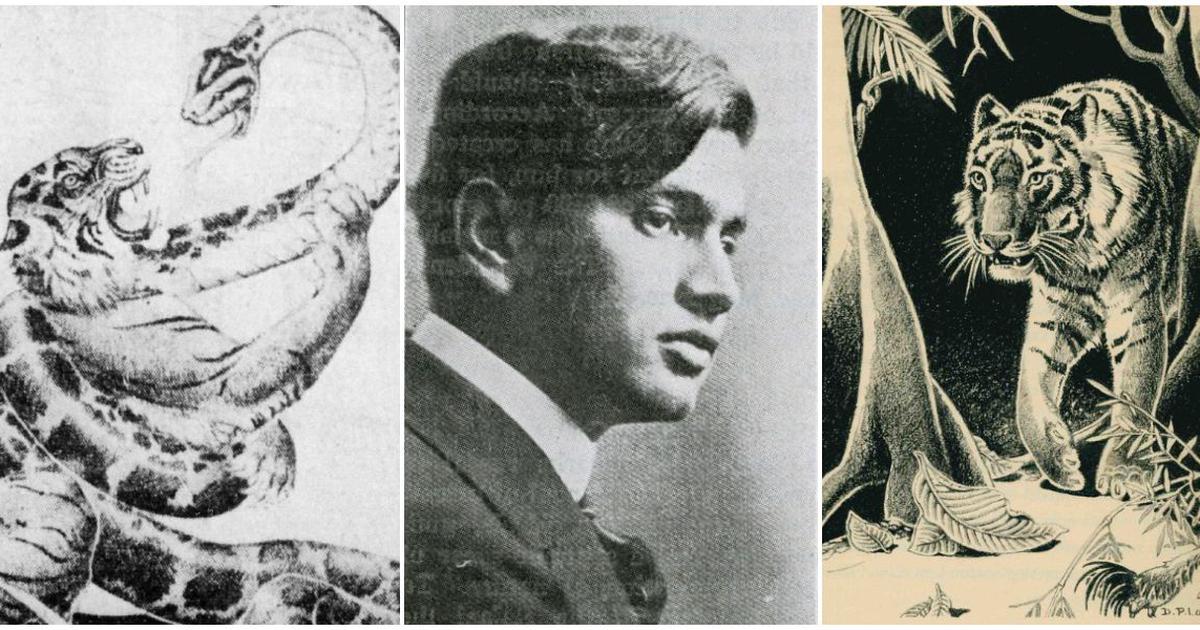Remembering the first Indian author who won America’s top children’s literature prize
Remembering the first Indian author who won America’s top children’s literature prizeon Apr 01, 2021

“Mankind is going to be so loaded with fear, hate, suspicion and malice that it will take a whole generation before a new set of people can be reared completely free from them.”Mukerji was the first writer of colour to have won the Newbery Medal, but it is likely that he did not get to savour the success. He had an agreement with his publisher, EP Dutton, since 1922 to write a work of nonfiction and fiction every year – a considerable output for anyone to achieve. In all, Mukerji wrote over 25 books, including plays, two books of verse and works in translation. His oeuvre ranged from children’s literature set in the jungles of East India to nonfictional accounts in which he sought to explain a changing India to the West and himself. He was prolific, articulate and gifted with an astute turn of phrase. He was popular with readers, both young and old, and admired by peers and critics, making him the first of a stellar list of South Asian writers in English who found fame in the West.

A Life in Words
Dhan Gopal Mukerji was born in 1890 in Tamluk in what is today West Bengal. His father was a lawyer and an itinerant singer who was patronised by the local rajas and zamindars. Mukerji’s childhood was idyllic – growing up in a village and travelling with his father, his early experiences shaped his recollections of the jungle that he would write about later. The jungle, for him, was a place of stillness and silence, where animals lived in harmony with nature and followed a timeless, ordained dharma. Mukerji’s older brother, Jadu Gopal, was a revolutionary fighting against the British. As the story goes, Jadu Gopal’s activities made him such a marked man that the family believed it was safer for Mukerji to move away after school. So that is what he did. He first set sail for Japan, and after a year, moved to California, where he did odd jobs and educated himself. He first went to Berkeley and then to Stanford, from where he graduated in 1914 with a degree in comparative literature. This was the time Ghadar rebels were organising themselves in the US to fight against British rule. Mukerji, however, wasn’t drawn to their ideology. When his name first appeared in news, it was not for violence. In 1911, as one newspaper had it, he and a fellow Indian, Rai Mohun Dutt, drew attention for exposing frauds who called themselves Hindus and lectured on palmistry.Search for Silence
In time, Mukerji came to hate the lecturing life. His children’s books were still popular, but he was drawn to writing books that explained India or explored spirituality and the inner life. In a school essay discovered by academic Gordon Chang, Mukerji’s son describes him as a distant father.His frenetic writing and his search – whether for a past, an inner life, or a reconciliation between the East or West – make his suicide at the age of 46 especially poignant. That day, as evident from a letter he wrote to his spiritual guide, the head of the Ramakrishna Order in Kolkata’s Belur Math, he had received the ochre robes that recognise a monk and his desire for renunciation.
Authors
Books and Ideas
Boy Scouts
Caste and Outcast
Chiang Kai-Shek
Children's Literature
Children’s books
Culture and Lifestyle
Dhan Gopal Mukerji
Frontlist Book News
Frontlist Latest news
Gay Neck
Ghadar
Girish Ghose
Indian Americans
Indians in US
Latest news
Mother India
Newbery Medal
Rudyard Kipling



.jpg)






.jpg)

.jpg)
.jpg)
.jpg)
.jpg)

.jpg)










Sorry! No comment found for this post.